Tohoku Region - Japanese Encyclopedia

Tohoku is the northern region on the main island of Japan, Honshu, consisting of six prefectures: Aomori, Iwate, Miyagi, Akita, Yamagata, and Fukushima. We introduce the festivals this region is famous for, as well as major heritage sites and travel destinations.
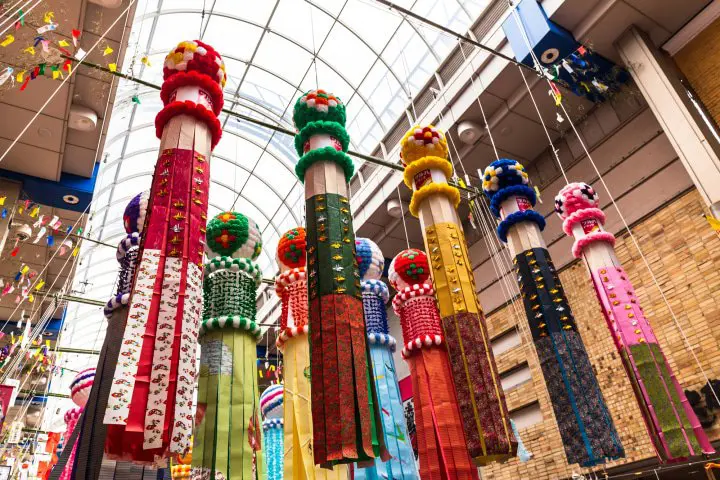
Photo by Pixta
Tohoku comprises the six most northern prefectures of Japan's main island, Honshu. These prefectures are: Aomori, Iwate, Miyagi, Akita, Yamagata, and Fukushima. The largest major city in the Tohoku Region is Sendai, with a population of 1.5 million. In order to reach the other large cities in Tohoku, it's typical to travel from Sendai.
Traveling to Sendai from Tokyo by car takes four hours, two hours by bullet train, five hours by highway bus and roughly one hour by plane. It is best to chose your method of travel to the Tohoku Region based on your schedule and budget.
The Nature Scenery in Tohoku
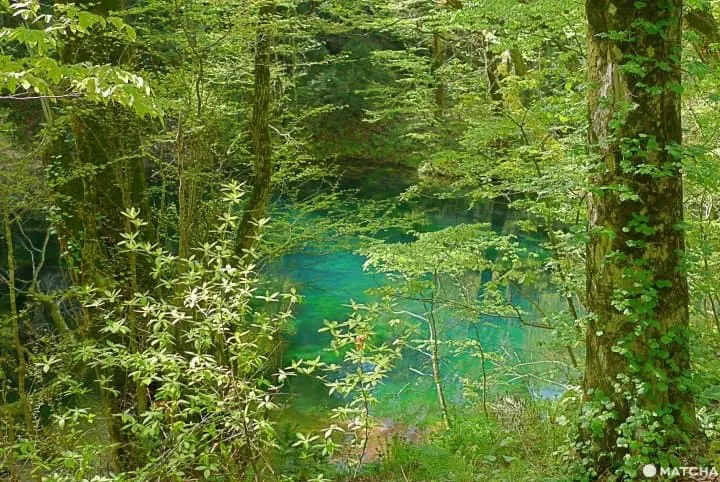
Nature untouched by human hands is abundant in the Tohoku Region. With an elevation of roughly 1000 m above sea level, Shirakami-sanchi mountain range was the first place in Japan to be registered on the UNESCO World Natural Heritage site list.
From the third week of April through the end of October, for the low fee of 500 yen, from Aoyama to Akita it is possible to enjoy the grandeur of these natural sites while mountain climbing. By comparing the degree of difficulty required to your own stamina, it's easy to choose from the five different mountain climbing courses available.
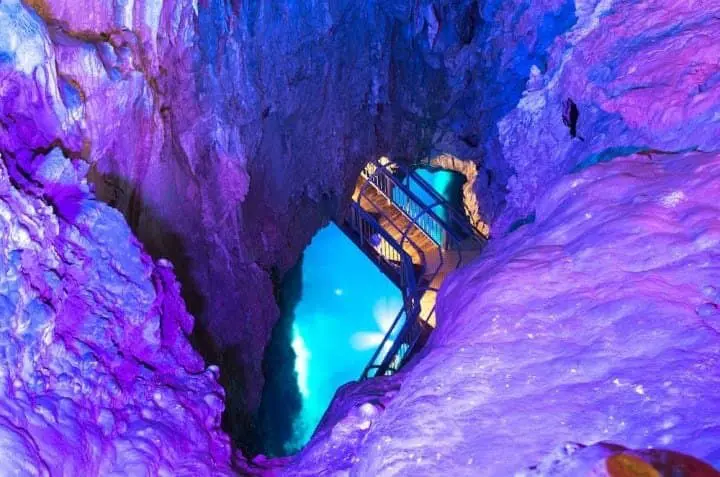
Photo by Pixta
The transparent blue-green underground lake Ryusendo in Iwate, the legendary home of dragons, is also a famous sight. Being roughly 120 meters at its deepest and having a visibility of 41.5 meters is what makes Ryūsendō not only the deepest lake in Japan, but one of the clearest lakes in the world.
It takes about 30 minutes to view the lake. The entrance fee is 1,000 yen, however there are value tickets available that combine the entrance fee with the tourist center, parking fees, drink/food sets or shopping vouchers. It is definitely a good idea to buy your tickets to Ryusendo in advance.
Read also
Famous for Japanese Historical Structures
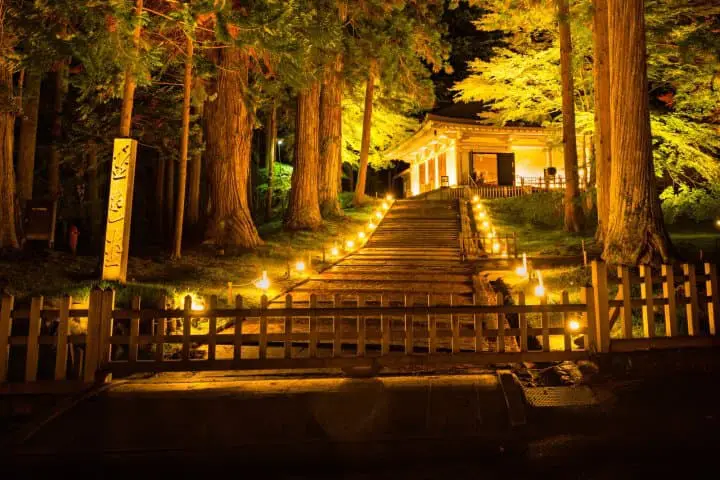
Photo by Pixta
Those interested in architecture will be delighted by the many historical castles, temples, and townscapes found in Tohoku. For example, Hiraizumi in Iwate is home to Chusonji Konjikido, a gorgeous temple hall ornamented with brilliant gold leaf, now a World Heritage site.

Photo by Pixta
And in Akita prefecture, you will feel like you've fallen back in time when you visit the Bukeyashiki, a former samurai residence.
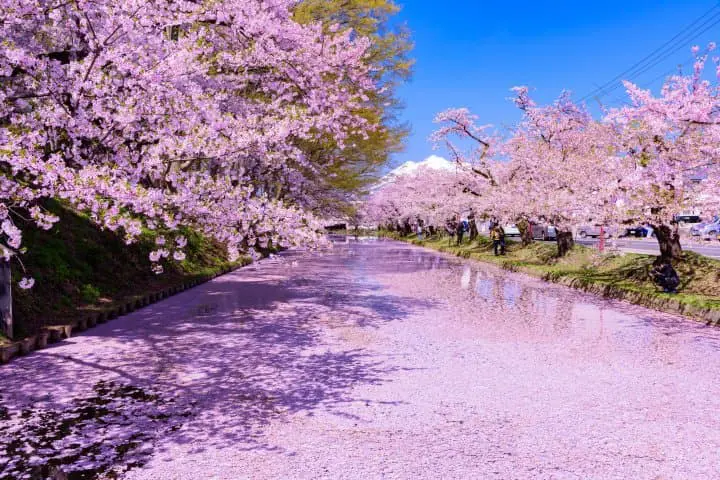
Photo by Pixta
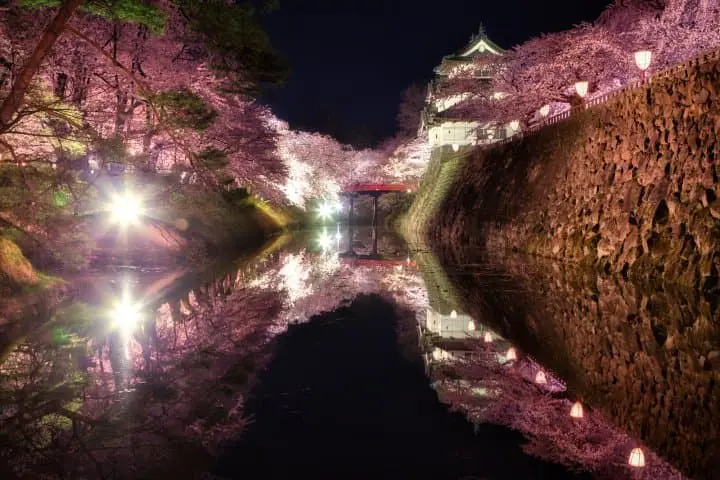
Photo by Pixta
To see some of the most beautiful sakura cherry blossoms in Japan, look no further than Hirosaki Castle in Aomori.

Photo by Pixta
Ginzan Onsen, a famous hot spring resort in Yamagata, looks dreamlike in winter under snowfall. It's an excellent destination for relaxation amid nature at any time of the year, though.
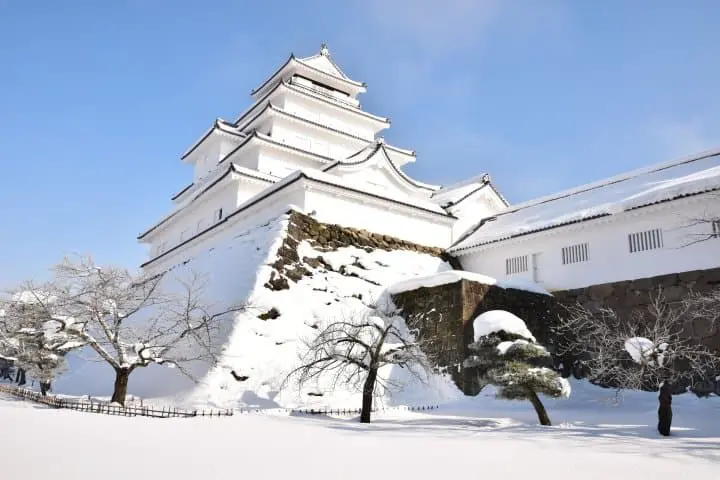
Picture courtesy of Aizu Wakamatsu Tourism Bureau
The Tsurugajo Castle in Fukushima is renowned as one of the most impregnable castles in Japan.
By visiting these structures and seeing their historical scenery, it is possible to gain a deeper understanding of the lifestyles of the samurai and nobility of the time.
Recommended Festivals and Events in Tohoku
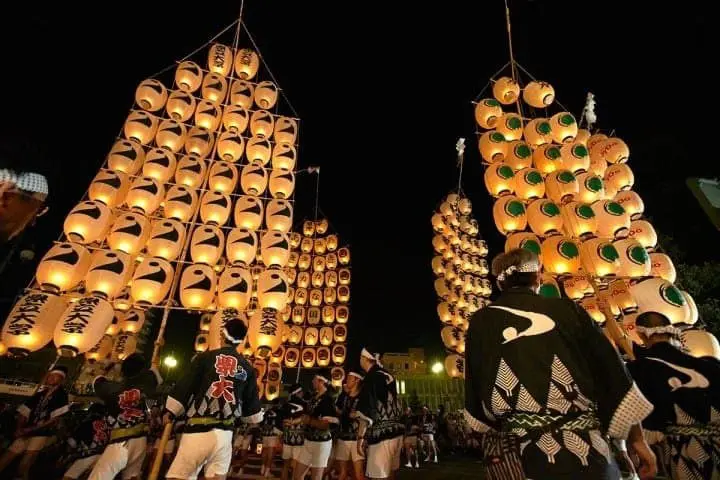
The Kanto Lantern Festival. Picture courtesy of Akita Prefecture Tourism Association
All the prefectures in Tohoku have their own distinctive festivals. The Nebuta Festival in Aomori, Sansa Odori in Iwate, the Sendai Tanabata Festival in Miyagi, the Kanto Festival in Akita, Hanagasa Festival in Yamagata, and Waraji Festival in Fukushima - there are six large festivals in total, all taking place in August.
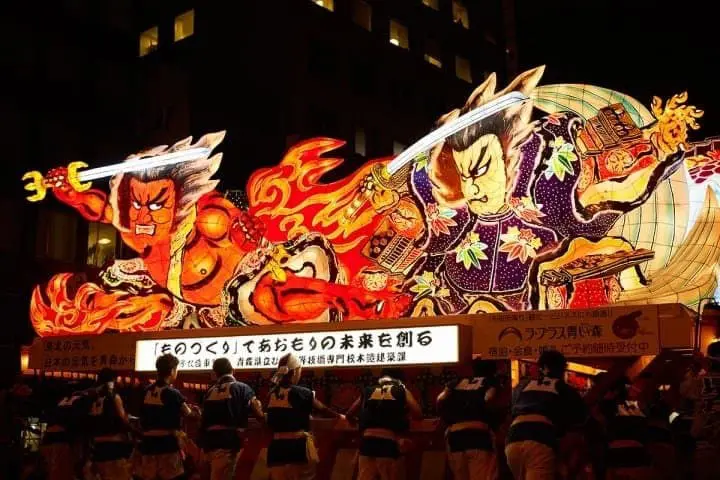
Picture courtesy of © JNTO
Of these six festivals, Aomori's Nebuta Festival is the largest and most famous in Japan, featuring dashi floats made from paper; they almost seem to dance and jump as they move down the streets.
As anyone can apply to participate, if you've got confidence in your strength and stamina, doesn't it sound like fun to make memories by adding your voice and strength to those of the locals?
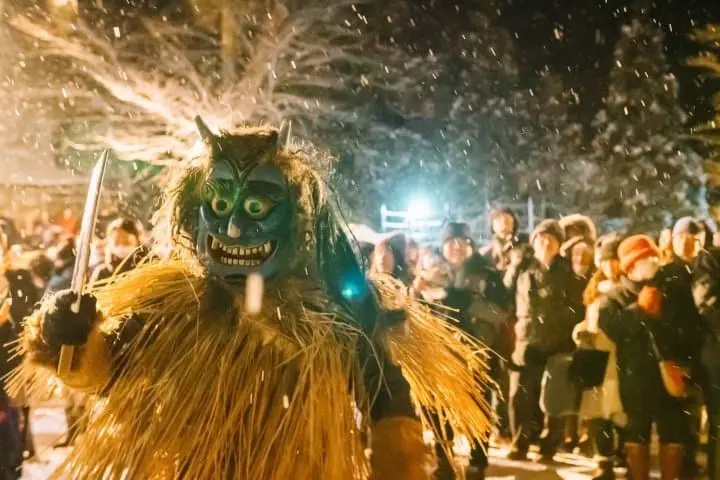
Photo by MONAMI ISHII, edited by FUKA KAMATA
If you are interested in Japanese folklore, at the Namahage Sedo Festival in Akita, or at the Kappa Festival in Iwate, you can get in touch with some of the ghosts from the past.
And, while not a festival, beginning in 1910 and happening every year at the end of August, Akita's Omagari is the largest fireworks display in all of Japan - an event not to be missed! Because of its popularity, it is definitely a good idea to purchase your tickets well in advance.
The Local Specialties of Tohoku
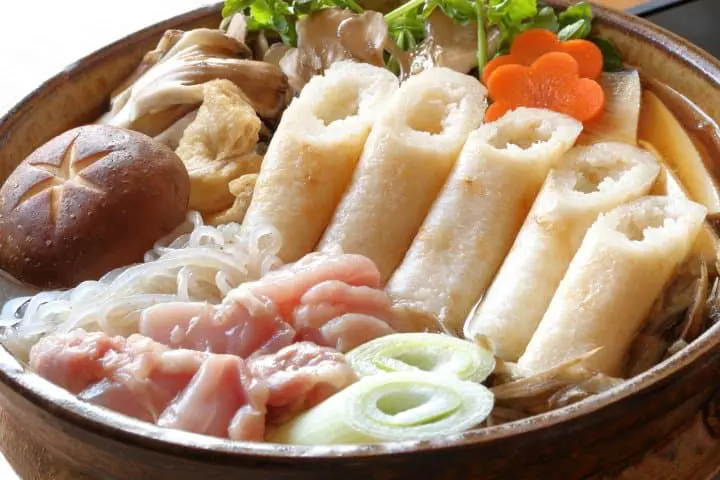
Kiritanpo hot pot. Photo by Pixta
In Tohoku, the local farming and livestock products, as well as the dishes made from those raw materials are bountiful; some of the most famous are the maguro (tuna) of Aomori, Akita's kiritanpo (*1) and Hinaidori chicken, the cherries of Yamagata, the Maesawa beef of Iwate, Miyagi's gyu-tan (cow tongue), and the Kita-kata ramen of Fukushima.
*1: Kiritanpo: freshly cooked rice that is mashed, shaped into dumplings on a large skewer and toasted.
With hundreds of events to choose from, why not try making your own kiritanpo in Akita, picking cherries in Yamagata, or for big-eaters, eating wanko soba in Iwate? No matter what you chose, you are sure to make some incredible memories in Tohoku.
Read also
Main picture by Pixta
This is the official account of MATCHA's editorial department. Our articles feature useful travel information for visitors to Japan, from how-to guides to recommended places to visit.















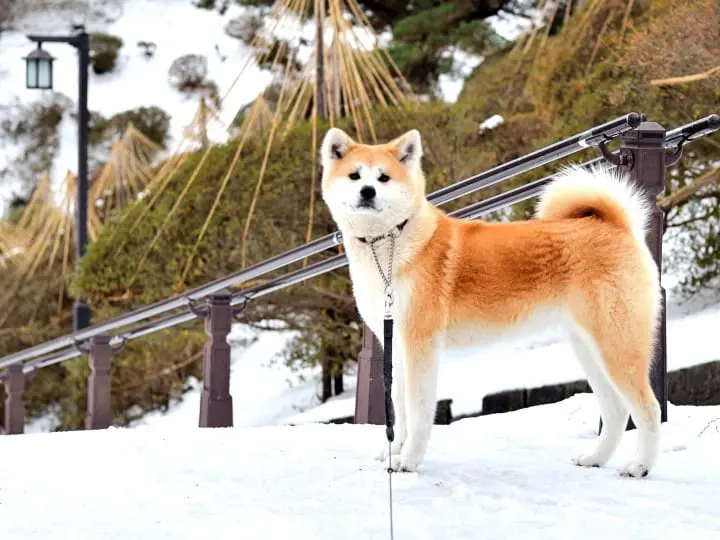

















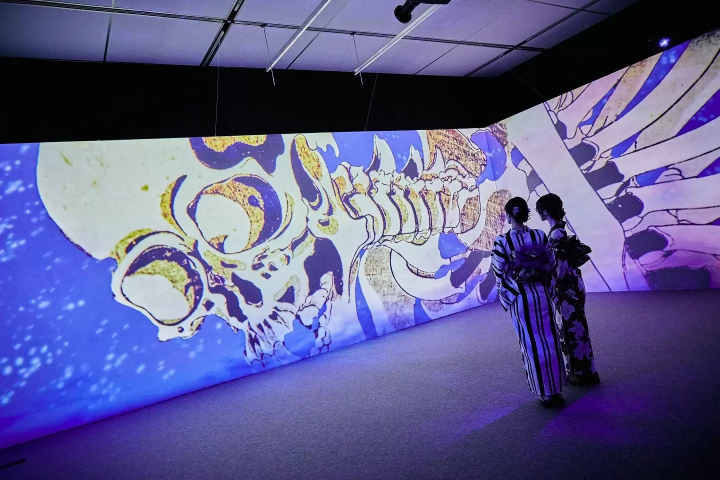
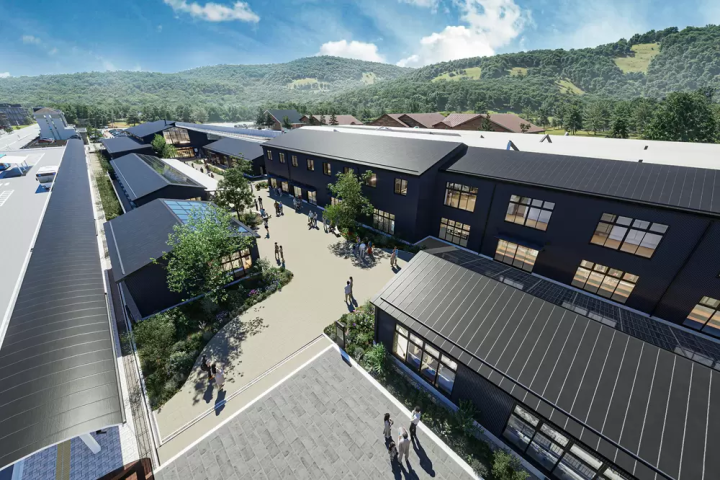
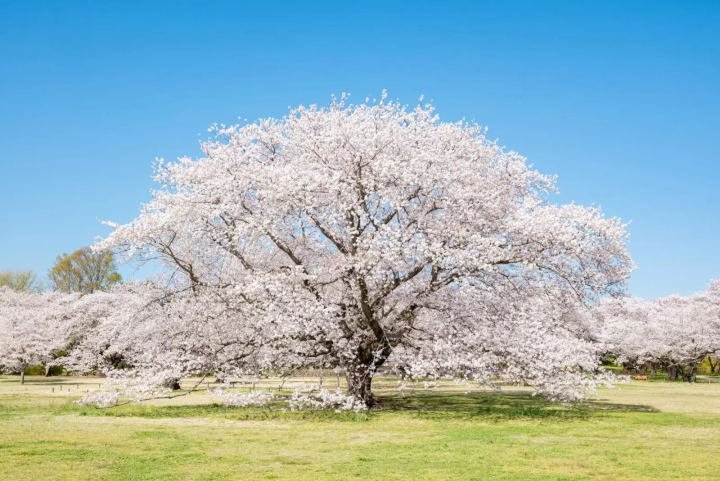

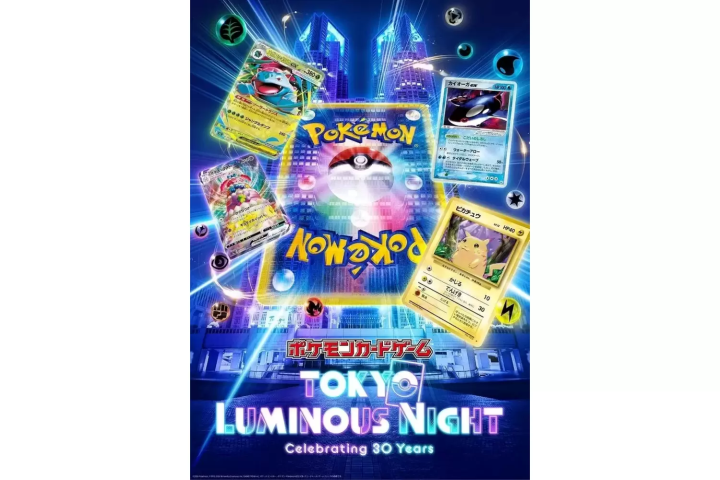





![[CAMPERLAB] Launch of next-generation sneaker "Tornado"](https://resources.matcha-jp.com/resize/720x2000/2026/03/05-260472.webp)
![[Latest Edition] 10 Recommended Lunches to Try in Yabu City , Hyogo Prefecture !](https://resources.matcha-jp.com/resize/720x2000/2026/03/05-260461.webp)
![[From March 11th] A collection of delicious Tohoku foods at Osaka 's Abeno Harukas Kintetsu Main Store!](https://resources.matcha-jp.com/resize/720x2000/2026/03/05-260451.webp)
![[First come, first served] Tour the hotel and get luxurious rewards! Stamp rally exclusive to visitors to Japan!](https://resources.matcha-jp.com/resize/720x2000/2026/02/18-259040.webp)
![[2026] Top 5 Cherry Blossom Spots in Naruto City , Tokushima Prefecture ! Light-ups and Access](https://resources.matcha-jp.com/resize/720x2000/2025/03/04-226780.webp)